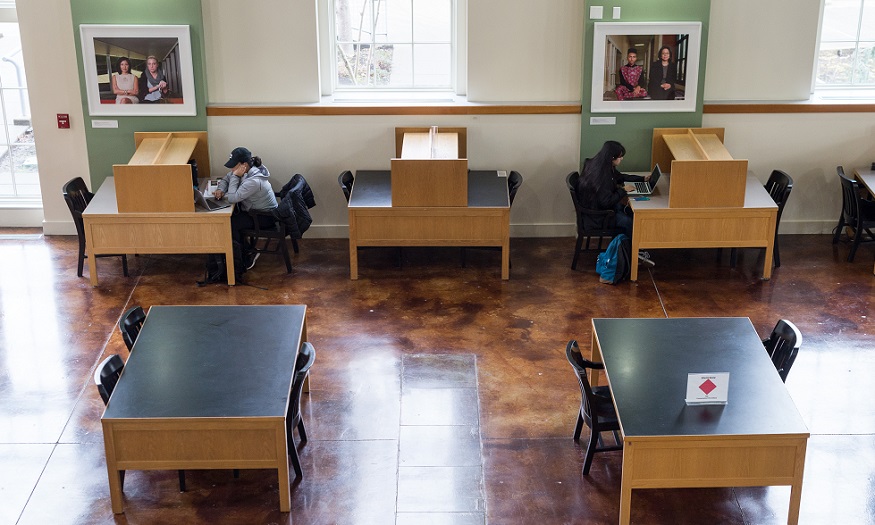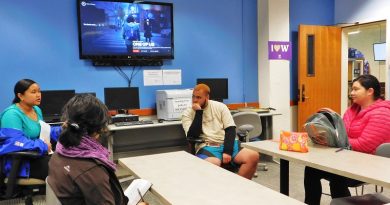‘Ask Me About my Pronouns’ workshop raises pronoun awareness on campus
The Center for Equity and Inclusion held a workshop on March 6 from 12:30–1:30 p.m., discussing how to understand and respect personal pronouns. The workshop took place in West Coast Grocery, which included activities and take home custom pins that participants could put their own pronouns on.
“[This workshop is] necessary because not a lot of people have an understanding of what gender is, so it’s an [introduction] for people to get into to understand,” said Victoria Miles, a senior majoring in Ethnic, Gender, and Labor Studies.
A video was shown at the workshop to help students and attendees better understand pronouns and the correct usage of them according to an identified gender. Along with the video, the workshop also featured an interactive activity on Minus18, a website that supports and contains the necessary resources the the LGBTIQ community — Lesbian, Gay, Bisexual, Transgender, Intersex and Queer.
The informative game, titled “Pronouns,” which helped students to widen their knowledge of different pronouns used, offer ed activities including the pronouns Xe, Ze, Ey, Hir, Fae, Hu, They, He and She and how these pronouns should be used depending on whether it is used as subject, object, possessive or reflexive. According to the website Dude Asks, there are 112 genders in 2019, and with there are more being added each year.
Beyond the interactive game, the website also features stories from and/or about people who have faced coming out hardships, at young ages, as well as workshops for youth and adults who face similar turmoils.
The workshop also introduced gender neutral pronouns such as Ze/Hir and Ze/Zir, and attendees were asked why people would use these types of pronouns.
In addition, all of the gender neutral bathroom locations on the UWT campus were shared with attendees, including those in the Cherry Parks, the Joy building, Garretson Woodruff & Pratt, the Mattress Factory and the UWY.
According to The StoneWall Center at The University of Massachusetts Amherst — a resource center for the LGBTQIA community — there are over 150 gender inclusive restrooms in many schools across the U.S.
“These types of conversations are really important for the Queer community and for everyone because not only are Queer people affected by these things; respecting people’s pronouns are just [a part] of respecting one another,” said Theodore Calhoun, a senior majoring in Ethnic, Gender, and Labor Studies.
Another activity within the workshop was asking attendees to engage with the person seated next to them, asking each other their name, what pronoun they identify with and interesting facts about them.
“It’s important for students to know that there’s a place on campus where they can come and express their identity freely, [and that] they know that there’s a place where they’re going to find support,” Calhoun said. “And then students who want to learn more but don’t know where to go, have a place to come learn more.”





